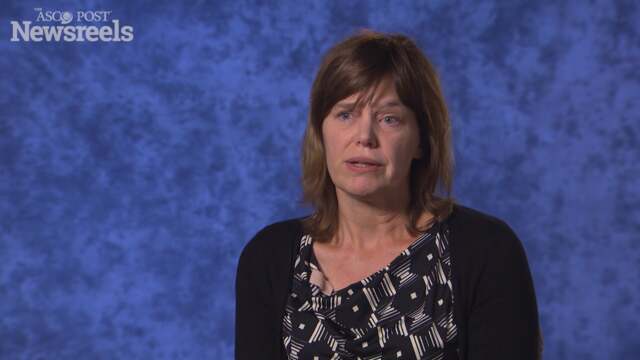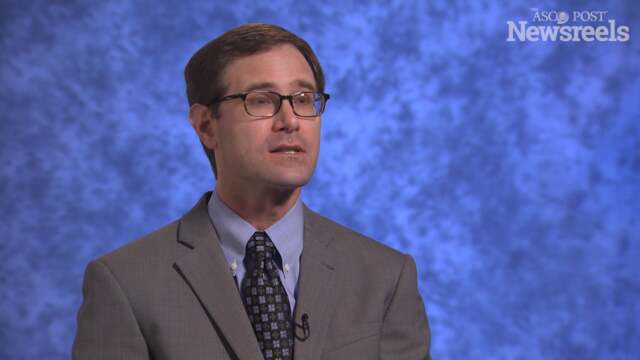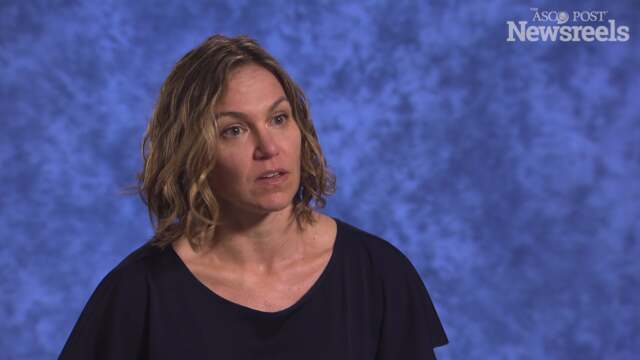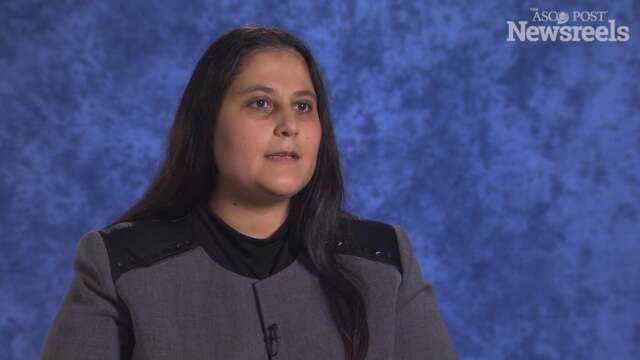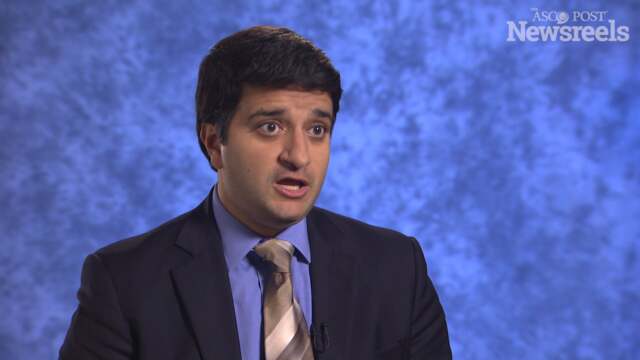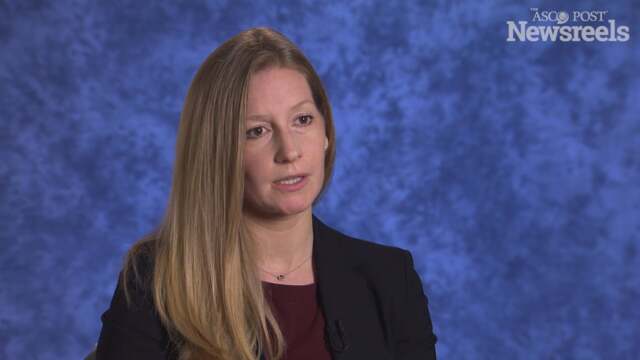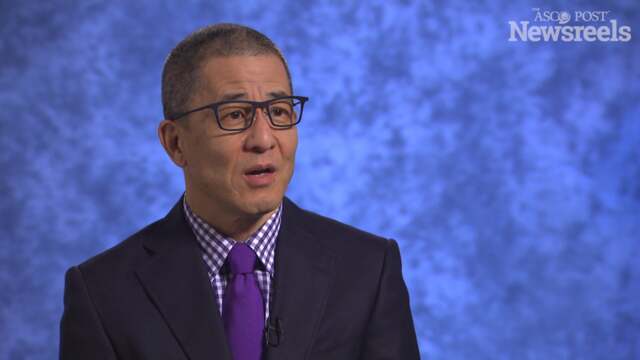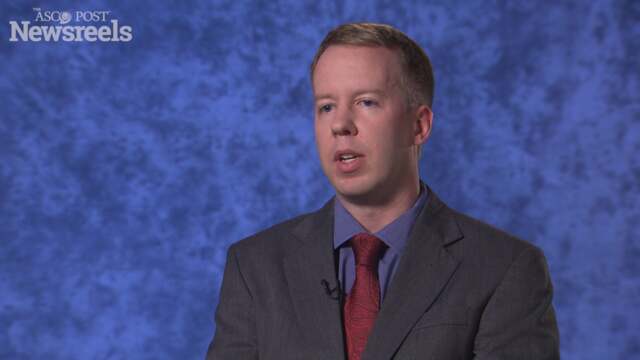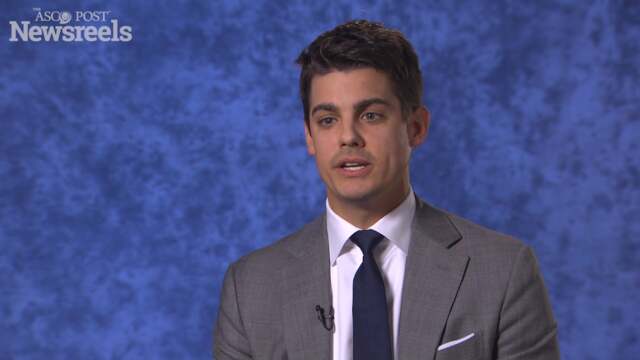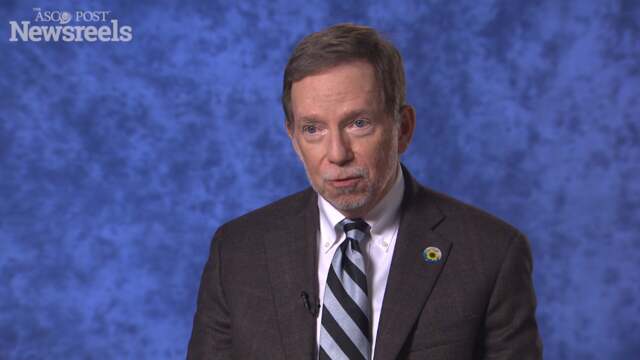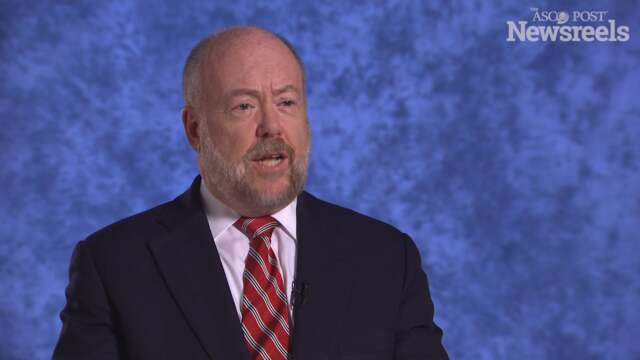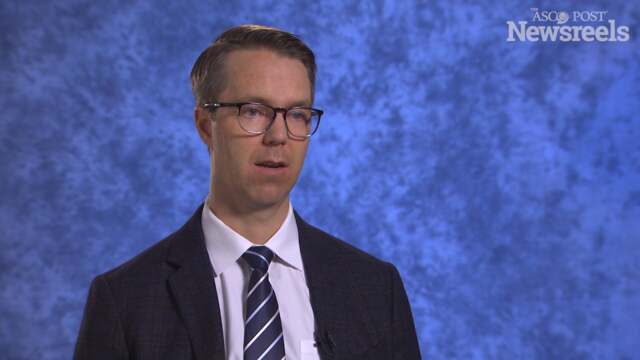2017 Palliative Care in Oncology Symposium
Caring for the Frail, Older Patient With Cancer: Four Practical Approaches
Cancer may be a disease of aging, but data suggest that older patients with cancer are undertreated, especially with respect to chemotherapy. One analysis showed that approximately 40% of patients in ...
Jenske Geerling, NP, on Painful Bone Metastases: Study Results on Nurse-Led Pain Education
Jenske Geerling, NP, of the University Medical Center Groningen, discusses findings from a multicenter trial on patient education, pain reduction, and quality of life (Abstract 203).
2017 Palliative Care in Oncology Symposium
The 2017 Palliative Care in Oncology Symposium took place October 27–28 in San Diego. Photos shown here, from left to right, as follows: 1. Eduardo Bruera, MD, of The University of Texas MD Anderson ...
Jeremy Hirst, MD, on My Patient Needs Opiates and Benzodiazepines: What Should I Do?
Jeremy Hirst, MD, of the University of California, San Diego, offers concrete advice on assessing the need for these medications, using them safely, and knowing when to deprescribe them.
Abby R. Rosenberg, MD, on Promoting Resilience in Young Cancer Patients: Results From the PRISM Trial
Abby R. Rosenberg, MD, of Seattle Children’s Hospital, discusses study findings on a skills-based intervention that helped teens and young adults with cancer manage stress to improve their quality of ...
Areej El-Jawahri, MD, on A Revolutionary Plan for End-of-Life Care
Areej El-Jawahri, MD, of Massachusetts General Hospital, discusses a video tool that helps overcome communication barriers so that patients can make more informed decisions for end-of-life care and th...
Sandip Patel, MD, on Immunotherapy: New Developments and Toxicity Challenges
Sandip Patel, MD, of the University of California, San Diego, discusses diagnosing and managing immune-related adverse events from immune checkpoint blockade and the toxicities of these treatments.
Jamie Jacobs, PhD, on Early Integrated Palliative Care: The Positive Effects
Jamie Jacobs, PhD, of Massachusetts General Hospital Cancer Center, discusses study results that showed integrating oncology and palliative care early in the course of treatment helps people with incu...
Anthony L. Back, MD, on Physician Burnout: The Response That’s Needed
Anthony L. Back, MD, of the University of Washington, talks about how clinicians can protect themselves from burnout and develop resilience. The default approach––“pretending we are not affected by st...
Michael Hoerger, PhD, on Early Palliative Care: Study Results
Michael Hoerger, PhD, of Tulane University, discusses the effect on quality of life, depression, and end-of-life care when physicians focus on coping or on decision-making and advance care planning (A...
Jacob J. Strand, MD, on Dealing With Opioid Use Disorders
Jacob J. Strand, MD, of the Mayo Clinic, discusses tips and tools that clinicians can use to develop universal precautions for prescribing opioids in oncology and palliative care practice.
Thomas J. Smith, MD, on Palliative Care and Outpatient Treatment: Expert Perspective
Thomas J. Smith, MD, of Johns Hopkins University School of Medicine, discusses successful models of integrating palliative care into outpatient oncology.
Charles F. von Gunten, MD, PhD, on Palliative Care in Oncology: A Fellows Curriculum
Charles F. von Gunten, MD, PhD, of OhioHealth, discusses an online curriculum that changed younger physicians’ use of palliative medicine in practice during the year after fellowship training (Abstrac...
Eric Roeland, MD, on Symptom Management: Expert Perspective
Eric Roeland, MD, of the University of California, San Diego, summarizes key papers delivered at the Palliative Care Symposium on managing insomnia, fatigue, nausea, and the ways in which physical the...
2017 ASCO Palliative Care: Yoga Can Be an Effective Supportive Therapy for People With Lung Cancer and Their Caregivers
In a feasibility trial of people with advanced lung cancer receiving radiation therapy and their caregivers, yoga was beneficial to both parties. These findings will be presented by Milbury et al at t...
2017 ASCO Palliative Care: People With Leukemia and Their Oncologists Have Vastly Different Perceptions of Prognosis
A study of 100 people with acute myeloid leukemia (AML) receiving chemotherapy found that patient and physician perceptions of treatment risk and the likelihood of a cure varied widely. Overall, patie...
2017 ASCO Palliative Care: Resilience Intervention Improves Quality of Life for Adolescents and Young Adults With Cancer
Although a cancer diagnosis is daunting at any age, adolescents and young adults (AYAs) with the disease often face unique challenges and are at risk for poor psychosocial outcomes than older patients...
2017 ASCO Palliative Care: Patients With Advanced Cancer Prefer Oncologists Not Use Computers in the Exam Room
Although the use of electronic health records in oncology care has led to improved care for patients, results from a new study show that oncologists need to be cautious about using computers during ex...
